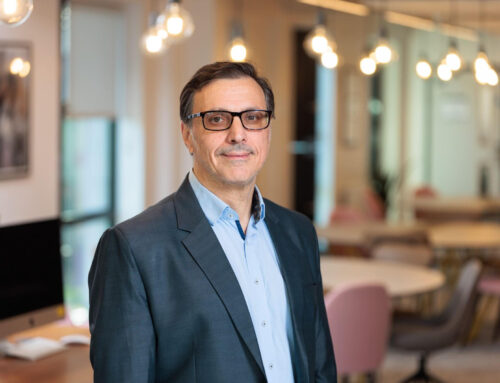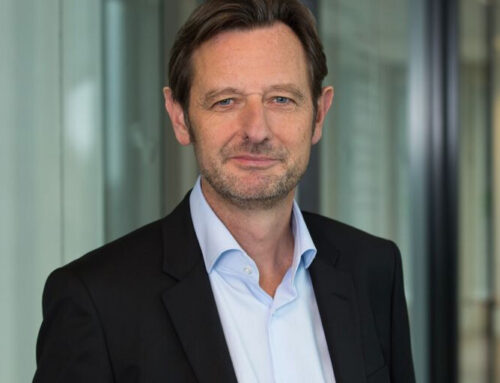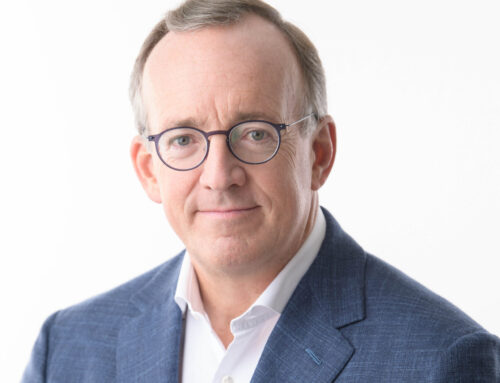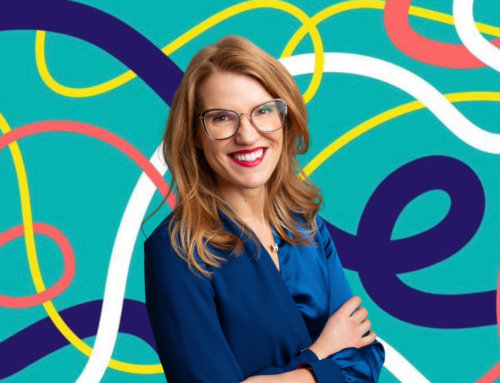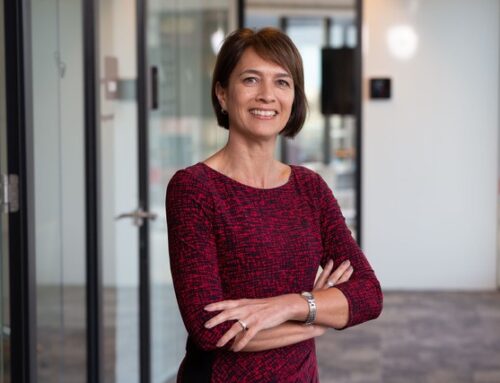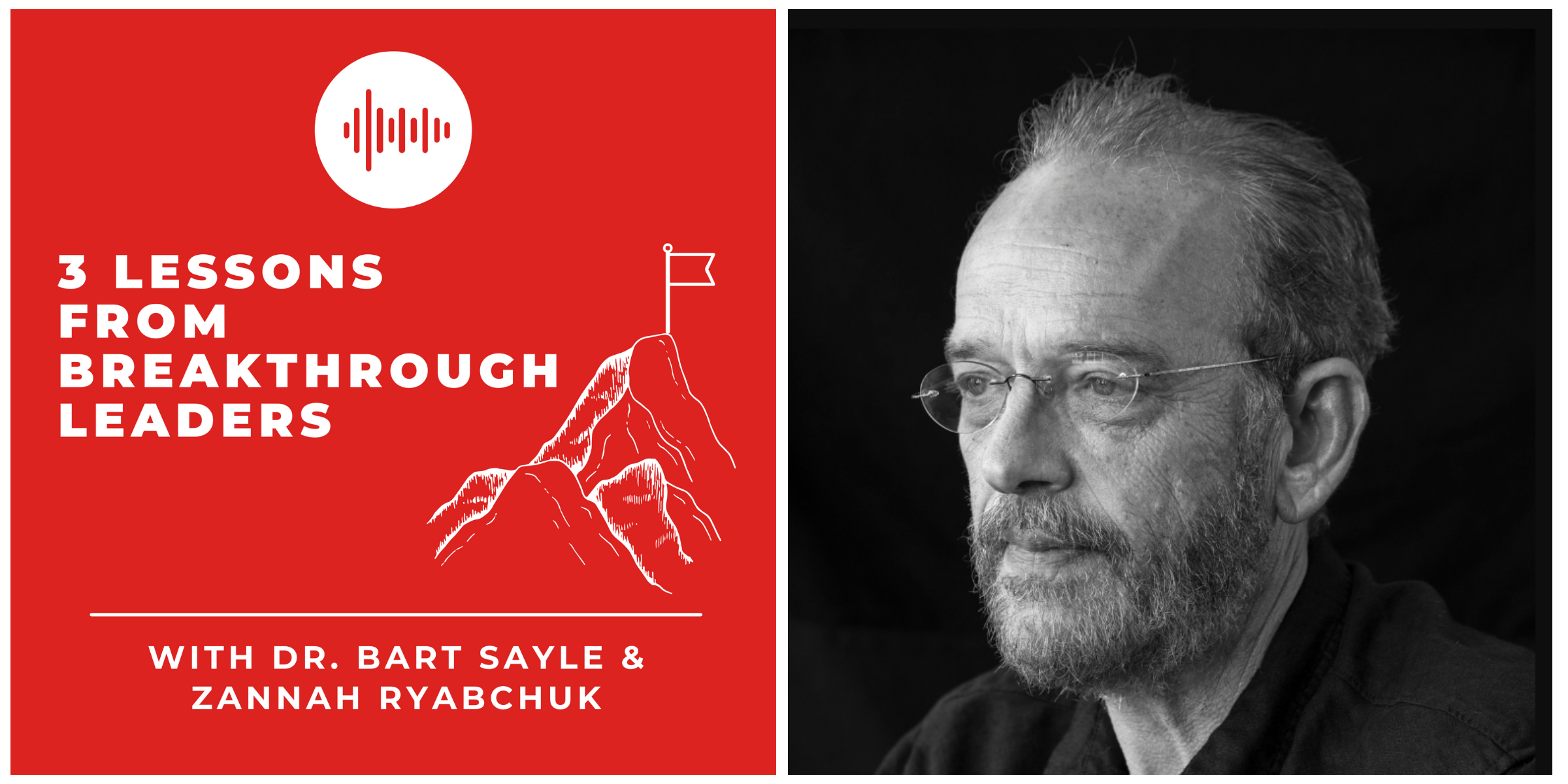
Today is World Oceans Day and we want to share this very important podcast episode with globally celebrated marine scientist & oceanographer Dr. Gregory Stone.
Greg is the recipient of every award available for Diving, Ocean Science & Conservation. He targets his research and thought leadership toward finding ways for humans to use the oceans in sustainable ways.
You can learn more about Dr Gregory Stone here and listen to Greg’s Podcast “The Sea Has Many Voices Podcast” here. You can find Dr. Gregory Stone on LinkedIn.
Listen to the S1 E10 ‘The Reality of Climate Change’ with Dr. Gregory Stone
You will learn these 3 lessons from Greg:
- Energy and culture eat strategy for breakfast
- Why you need to pay attention
- What we need to do to deal with the reality of climate change
This podcast was recorded in the autumn of 2021.
If you enjoyed this episode, make sure you subscribe to this podcast and please do leave us a review and rating on your player of choice. We will be updating you on upcoming episodes on our social media so remember to follow us.
Transcript of the episode
Zannah Ryabchuk
Hello and welcome back to 3 Lessons From Breakthrough Leaders. I’m Zannah Ryabchuck MD at Breakthrough Global.
Bart Sayle
And I’m Dr. Bart Sayle Breakthrough CEO and founder. We’ve spent 30 years developing the Breakthrough Methodology to transform companies who want to reach the highest level.
Zannah Ryabchuk
And in this podcast, we’ll get to the heart of transformation, meeting leaders and creative talents to share three lessons that we guarantee will help you and your companies to unleash your potential. And Bart and I will take a moment to analyse the key takeaways and opportunities for Breakthrough thinking.
Bart Sayle
In today’s episode, we’ll learn from globally celebrated marine scientist and oceanographer Dr. Gregory Stone, he’s the recipient of every award available for diving, ocean science and conservation. His 12,000 dives give him unparalleled knowledge of the ocean and its life. Greg has served in many senior roles during his career, he published hundreds of scientific and popular articles, four books, documentaries for Discovery, and National Geographic, a TED talk, Davos lectures, and numerous radio and television appearances.
Zannah Ryabchuk
And today, we’ll hear these three lessons from Greg energy and culture eats strategy for breakfast.
Greg Stone
The energy and how people relate how people trust each other, how they communicate, those kinds of qualities are what makes companies successful. And not necessarily someone with fantastic expertise in this area.
Zannah Ryabchuk
Why you need to pay attention.
Greg Stone
Since the Paris Climate Agreement. We haven’t done any of that stuff. It’s just not taken seriously. There’s a lot of lip service to it. Companies have their ESG requirements. But we’re we’re not we’re not doing it. We’re not facing this existential threat.
Zannah Ryabchuk
What we need to do to deal with the reality of climate change.
Greg Stone
There’s kind of a there’s kind of a natural law of politics that if the leadership from the top is failing, then you need to have it come from the ground up to change it.
Bart Sayle
Lesson one, team energy for success.
Bart Sayle
Why don’t you tell our listeners about how we met Greg?
Greg Stone
Yeah, yeah, that’s a good story.
Bart Sayle
We even shared the honeymoon suites.
Greg Stone
We did. We did. He told me the secret of your business, which I won’t reveal over the show here. He told me the secret.
Zannah Ryabchuk
Tell us more about the honeymoon suite, please.
Bart Sayle
It was it was a it was a little shack actually on the ocean on stilts. And we were on a field trips, and there wasn’t much accommodation. So we elected to share one of the most remote places I’ve ever been.
Greg Stone
Yeah, it was really it was really remote. It was in in Indonesia. It took you like two days to get there once you got to Indonesia. And it was eco resort. And everybody everybody had to share there was doubled up everywhere. And he he had offered quite generously to use his skill set to help me with my team. I ran a global team on ocean conservation for a big organisation called Conservation International. And I had about a I had about 200 people that kind of under my purview globally. We gathered up half of them there for this session. And Bart offered to do with my group what he does with businesses. So the afternoon came for him. And I said, okay, Bart this is your part, this is your part of the show. Go ahead. I didn’t know what he was going to do. And he said, Okay, so he stood up with his normal charisma and, and focus. And he broke us up into groups. And he started at giving questions to the groups and they had to work it out together. And then another question, they’d work it out another question. And then at the end, they’d report back to the whole group, what their answers were, they were questions like, What was the most important thing that Conservation International has ever done? What is the most important thing Conservation International should do in the future? What is the major drawback or problem in Conservation International, it was those sort of general questions. And we finished the day and you didn’t like, tell us anything that day. We just kind of trickled off to our rooms. And so I asked you that night I said, So Bart. How were their answers? Did they get it right? You know, what’s the story, you know? And he said their answers he says, Oh, I don’t even remember what their answers were. That’s not what I was looking for. He said, he said I was looking for energy. I was looking to see how the energy and the group flowed. And he said, you’re in pretty good shape, there is one person you said, to keep an eye on. And then when you explained your theory of organisational function, which I know is much more complex than what I’m about to say, because I don’t know exactly, but you said that you know, the energy and how people relate how people trust each other, how they communicate, those, those kind of qualities are what make companies successful. And not necessarily the smartest guy in the room, or the, or the, or the expertise has someone with fantastic expertise in this area. And I learned a lot from that, that comment you made them and I thought about it a lot since. And I’ve applied it in my own work now too, I call them, I call it wizzy watts, I like I like wizzy watts, what you see is what you get is what I want people, I don’t care if it’s bad, or if it’s good, but I want to know what it is. It’s the people that tell you different things at different times, you don’t know what who they are, that is a big problem. And then there’s people that just have just have this just tense energy, that, that that stops the flow of creativity and stops the flow of conversation and, and that’s the downfall of a lot of groups. And I had come to the organisation fairly recently, so I was still on kind of a honeymoon, if you will, with the organisation and the employees. So we were in good shape, and Bart was a really, really great aid to me and in managing that thank you.
Zannah Ryabchuk
Energy is fundamental to the way that we transform organisations and individuals, you need to focus on a clear business outcome, and then deliver it by evolving the physical, mental and emotional energy of the people.
Bart Sayle
Yes, all too often we allow external factors to manage our energy state, when really it’s up to us. So ask yourself, do you manage your energy, or does your energy manage you? Everyone has the ability to raise their energy, even by just 10% over the whole organisation, the impact of this would be huge.
Zannah Ryabchuk
So now imagine the impact of everyone in the world raised their energy by just 1% just one degree change in relation to tackling climate change, it would be enormous, a critical mass of 7 billion people making a 1% increase will be compounded to 10 billion. This one degree shift is a tiny action from each of us that would change the future of the planet.
Bart Sayle
And now lesson two pay attention.
Greg Stone
It took us 200,000 years to reach a billion people on this planet. And then it took us 200 years to add 6 billion people more to the planet. So we have fundamentally changed the biological architecture of this planet in a way that you can’t go back. So trying to go back and restore vast parts of the ocean to what it was once like, not only is it impossible, it’s it’s impractical and makes no sense. Because so many of those people rely on the ocean for food. And most of those people are in the developing world. They rely on it for food, they rely on it for products, medicinal products, they rely on it for things to sell. The ocean and humans we have become, we’ve become completely integrated with the ocean. So we decided that a healthy ocean was defined as one that would supply sustainable benefits to people now and in the future. So what that means is that you could look at a coastline and you could see a fishing boat, you could see a hotel, you could see a fish farm, you could see a highway you can see a whole bunch of things. But as long as all those components were engineered such that they did not degrade the ocean. And better yet, they regenerated the ocean, that’s sort of the new phase is that we have to whatever we do now has to be a plus not a negative, then that area could have an extremely high ocean Health Index score. That was the name of the metric and Bart named it actually, we were sitting around thinking about all these ways to describe it. And marine conservationist had gone down the negative road for so many years. We were documenting the decline of the ocean in scientific papers. It was like funeral reports. Every paper that came out was just bad. So we said let’s put a positive spin on this thing and we were playing around with words, and Bart said health. And we all said health. That sounds strange. And then we put Ocean Health Index together. And it worked.
Bart Sayle
It took off, didn’t it? Yeah, it really did take off. Yeah.
Greg Stone
That was a transformational concept that putting humans in the ecosystem was was transformational. We, we had, I would say, roughly 100 scientists around the world that we had consulted with about this. And 90% of them agreed with that 10% of them didn’t 10% of them walked away and said, You guys are nuts. I’m going back to my ivory tower and kind of study my Leafy Seadragon. And you guys do whatever you want, you know, they didn’t, they didn’t understand that. Things were so serious that we had to come up with metrics and ways of communicating that were effective, and that we could affect change with it. And in fact, many countries adopted the Ocean Health Index as their way of measuring their their national ocean conditions.
Zannah Ryabchuk
So Greg, thinking about that. Where do you see that there’s that gap. Now in terms of where you were, then, to where you are now, and how things are going?
Greg Stone
I think that I think we’re in really big trouble since the Paris Climate Agreement. And I was there, I was a science advisor to a country, we haven’t done any of that stuff. You know, there was all this hopefulness that we had this agreement, we had these targets, but we’ve actually increased our co2 production into the atmosphere since then. And it’s just not taken seriously. There’s a lot of lip service to it. Companies have their ESG requirements. I have some questions about that, what those really mean, and how effective they really are. But we’re, we’re not, we’re not doing it. We’re not facing this existential threat. I’ve been especially pondering these things a lot. And I want your listeners to know that it is really bad, it is extremely bad right now. And people have to pay attention. They can’t just sit back and say, and say, oh, I’m okay, I feel comfortable, don’t change a thing. I like the way it is right now. Well go to Bangladesh, where I think I think it’s 1000 people a day are moving away from flooded areas. And go to go to a country where the mean life expectancy is 45 years old. I mean, you gotta you gotta open, open your eyes up and look around and see what’s happening.
Bart Sayle
Yeah. One important lesson for me, in my work with conservation, is this idea of the moving baseline. And what that means is that previous generations saw a much richer world a much richer nature, in terms of species in terms of environment. But each generation sees its own world as the baseline. And because of this, we become blind, really, to the changes that are going on to the declines that are going on. So I can remember when I was young, there were far more birds around. There were far more insects around. There was far more wildlife around. But will my children and my grandchildren realise that they’ll wake up in a world where there’s fewer species, fewer wild places to go to? But they’ll see that as normal. And this for me, is the call to action.
Bart Sayle
And lesson three, deal with the reality of climate change.
Zannah Ryabchuk
And what do you think we can do about that? Greg? Because, I mean, we’ve talked in the past about the challenge, and you mentioned that they you know, stop using the word climate because people don’t get it, but people are almost like, paralysed with their inability to feel like they can contribute or do anything. So what what do you what do you see are the things that really should be completely changing right now, in order to avoid this total disaster?
Greg Stone
I can tell you what has worked in the past, in civilization, and we can learn from that. I think those of us my age, and Bart’s and a little bit older, are still very connected to the events of the 20th century. And I’m talking about the Depression and I’m talking about World War Two. And as I grew up, you know, my parents were, they were still living in the Depression and World War Two in the 1960s and 70s, that was a part of their value system values have a way of lagging technology. You look at the world through the lens of the values that formed you, or were strong or were overwhelming or important. And they stay with you for a long time, you know, they were so worried about depression and some of the aspects of World War Two. Whereas the threat of the Depression, while still there, there had been a lot of safeguards put into place to make sure that didn’t happen again. And World War Two, you know, we had NATO, that was pretty much locked down right then and there, the Cold War was was far more of a threat. But that wasn’t something that they worried about a lot. They were still in their heads telling me about the food stamps that they had during the Depression, they were still telling me about what they both did in World War Two, they were still all on that. And, and today, today, people’s values are stuck in the 1970s and 80s. And they’re not applying their values to to 2020, where technology has changed. Our science has changed. And there are things that we can do today. To do this. The other thing about World War Two is that every day, everybody got up in the morning, and the first thing they said to somebody else was, how’s the war going? What can I do? The whole society was focused on it. Famously, Roosevelt brought car manufacturers and the steel manufacturers to Washington, DC in 1941. And he told them, okay, guys, I need you to make me 1000 tanks a month 20,000 jeeps, he gave him a shopping order for war material. And the presidents of these companies looked at each other. And they said, Mr. President, we can’t do that. And he said, Well, why not? And they said, well, if we do that we can make cars. And he said, No, you don’t get it to you, you’re not gonna make cars anymore. You’re gonna you’re gonna make war material. Because if we don’t win this war, it’s over. I mean, we needed a point in time and a focus to get everybody aligned. And and the timeframe was short enough that everyone got it. We need changes like that. We should be thinking about it every day. I don’t know how to get people’s attention.
Bart Sayle
What about what about very young people? What about the children now? That being born, and being educated? What can we do? Because you know, a lot of our listeners out there, they want to do something. And and while we may not get the UN organised enough for governments organised enough, what can people do?
Greg Stone
Well, well, there’s, there’s kind of, there’s kind of a natural law of politics, that if if the leadership from the top is failing, then you need to have it come from the ground up, to change it. And the American Revolution is a good example of that. And I would add to that though but you rise up short of violence, you know, you you, you rise up as strong as you can, but you don’t get violent. I think that’s what’s happening now, with the young people. They know there’s something wrong, some of them are, are mad about it, like that young lady in Sweden. But the other part about this is it’s a very complicated issue. This is something that just permeates every part of our society, we need to do a real rethink of everything, and not just strive for the most expensive, the most luxurious, the most comfortable way to live.
Bart Sayle
So what can we do? Well, my belief is that we all have to get engaged in this. We already have all the resources we need, we may not just see them, and we may not be using them to the full. We need to become more resourceful. It’s very easy to become helpless about this when we hear the messages of how far it’s gone, that there’s no time left, and so on. But actually all that will do is put us all into a resigned mindset, and even a cynical mindset and we become paralysed. What we need is we need the magical thinking mindset to create new ideas and new possibilities and new ways of solving this. And we need the heroic action following that. So that individuals, groups and even governments can rise to the challenge and change our trajectory. Because in the future, the planet will survive, the oceans will survive. That’s not a question. The question is, will humanity survive? That’s what we’re saving here.
Zannah Ryabchuk
And as humanity, we have this incredible power to learn from history, we can view history as a wheel as a cycle instead of in a linear pattern. And this gives us a lot of resources so that we don’t keep making the same mistakes again and again.
Zannah Ryabchuk
Greg, onto the Hot Seat questions. Are you ready?
Greg Stone
I’m ready. Okay.
Zannah Ryabchuk
So the first one is, what is the most exciting thing you’ve ever done?
Greg Stone
Diving in Antarctica. 20 years ago, the big iceberg broke off of the Ross Ice Shelf, the size of the state of Connecticut. There was enough, freshwater in that iceberg to supply the United States for five years, including its agricultural needs, thats a lot of water. And I heard about it in June. And I was there by January, on a private National Geographic expedition. And we dove into an under this iceberg. And it was it was very exciting. It was very dangerous too I don’t think, I don’t think I would have done it if I had the brain I have on my head now. That age I did it and and probably the other one would would have been, it’s all got to do with the ocean with me. So it was you know, be going down to 18,000 feet in a submarine was pretty exciting.
Zannah Ryabchuk
Wow. Finish this sentence, please. Success is …
Greg Stone
Success is. I’ll put it a different way. People often ask me who are my heroes? Okay. It started out one day somebody said, oh, Ernest Shackleton must be your hero, right? Because I’ve spent a lot of time in Antarctica. And I said, Ernest Shackleton, are you kidding? People that sacrifice a large part of their comfort or their lives for other people really excite me, Nelson Mandela, I would be humbled to hope that, that I could have some kind of an effect like that. I don’t know that I am. But that that’s what inspires me.
Zannah Ryabchuk
What brings you energy and motivation in your everyday life?
Greg Stone
It’s it’s the anticipation of accomplishing things that I will feel good about after I accomplish them. It’s pondering things like what is consciousness? I still think that’s one of the most important things that we should be talking about. Nobody, nobody knows what it is. But I wake up every day thinking about it, wondering what it is. That keeps me going.
Zannah Ryabchuk
And Greg, if our listeners want to find out more, or get in touch with you or send you a question or anything like that, what’s the best way to do that? Is that through social media, should they contact us and we can pass it on to you how would that work?
Greg Stone
I usually tell people to Google, Greg Stone ocean those three words Greg Stone ocean got and they’ll find all kinds of stuff. Yeah.
Bart Sayle
Perfect. And Greg, what’s the name of your podcast?
Greg Stone
The Sea Has Many Voices.
Zannah Ryabchuk
What a beautiful name of a podcast. All right. Thank you so much. Yeah.
Bart Sayle
Thanks so much, Greg for, for agreeing.
Greg Stone
Oh, I’d do anything for you.
Zannah Ryabchuk
Thank you for joining us for today’s 3 Lessons. Do make sure you hit the subscribe button and join us next time for another 3 Lessons from Breakthrough Leaders. You can reach out to us at Breakthrough Global on LinkedIn or Facebook, or via Twitter at Radiant Clarity, or Instagram at Global Breakthrough.
Bart Sayle
And we’d love to hear from you, your feedback and your own leadership stories. We’d also love for you to share this episode on your own social media and review and rate this podcast on your player of choice as we want to spread these transformative lessons as widely as possible.
Zannah Ryabchuk
And finally a huge thanks to our production team, Julia Soltysova at Breakthrough Global and Robin Leeburn of Fairly Media and of course, thank you for listening.
Transcribed by https://otter.ai

